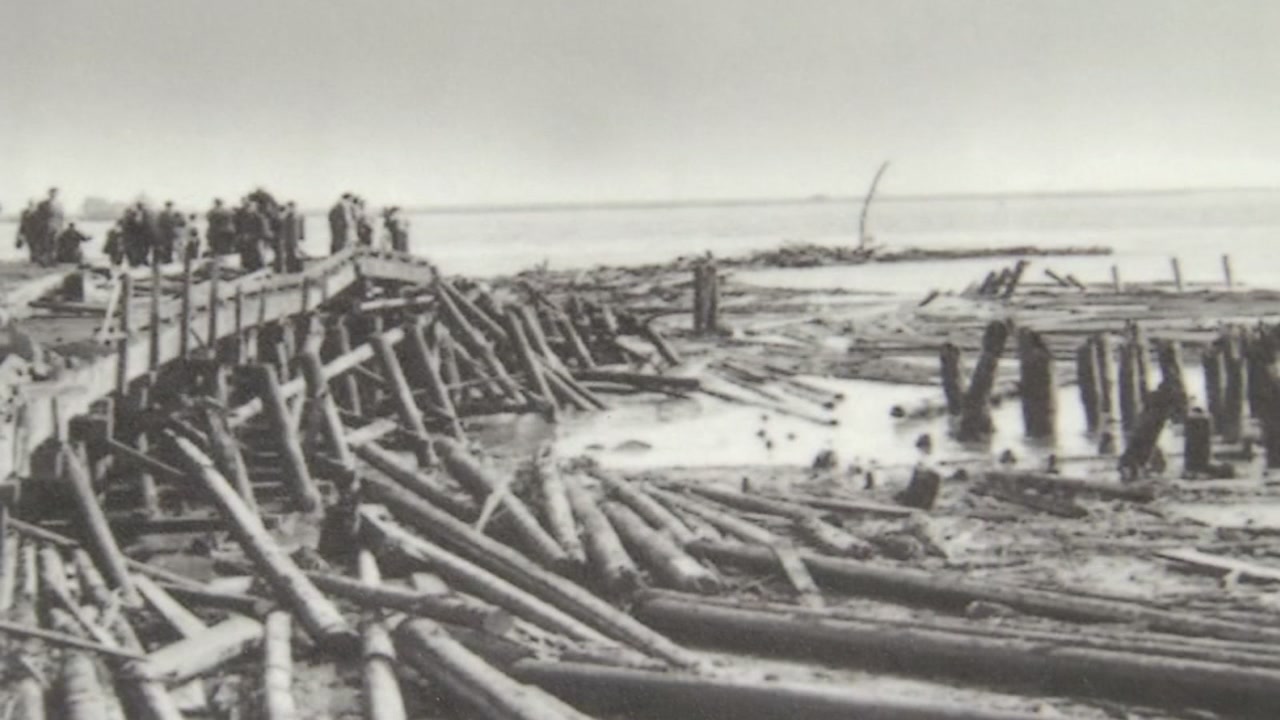Next week there will be ceremonies of remembrance for the Port Chicago disaster, but, historians say you can't separate the event from the racism that contributed to it.
"It was massive. It was a huge disaster"
[Ads /]
That's National Park Service Ranger Kelli English-- who is organizing an event next Wednesday-- is remembering the lives lost.
English took ABC7's Eric Thomas on a tour of the epicenter of the Port Chicago disaster of July 1944.
Disaster may not be a big enough word to describe the hell unleashed when two cargo ships-- one nearly filled to the brim with bombs and bullets-- exploded.
"There were actually two explosions, one after the other and it shook the entire east bay. It shattered windows in San Francisco and it registered as a 3-point-4 on the seismographs at UC Berkeley " she said.
and it wasn't just property that was demolished.
English says "320 men were killed, scores more were injured.
The Blast vaporized one ship - the E.A. Bryan, which was nearly filled with thousands of tons of munitions. The other-- the Quinnault Victory-- was shattered, with larger pieces thrown 500 feet into the Bay. Other, red hot parts, flew thousands of feet into the air.
[Ads /]
Most of the dead were African American sailors - who were loading the ships, with no training in handling munitions, and little in the way of safety measures. Afterward, 50 black survivors refused orders to go to Mare Island and resume munitions loading and they were court-martialed for mutiny.
"I think if we were talking about white sailors instead of black sailors I think there's a very good chance it wouldn't have gone anywhere as far as a mutiny trial."
The black sailors were convicted and sentenced to hard labor, but east bay congressman Mark DeSaulnier just got a measure passed in the house that would exonerate the men.
"one of the things about this country at its best is that we've done at our worst, acknowledge it, correct it and learn from it," he said.
The bill may have a tougher time getting through the Senate. But, Historians believe the Port Chicago disaster and the treatment of black sailors led to the desegregation of the military.

